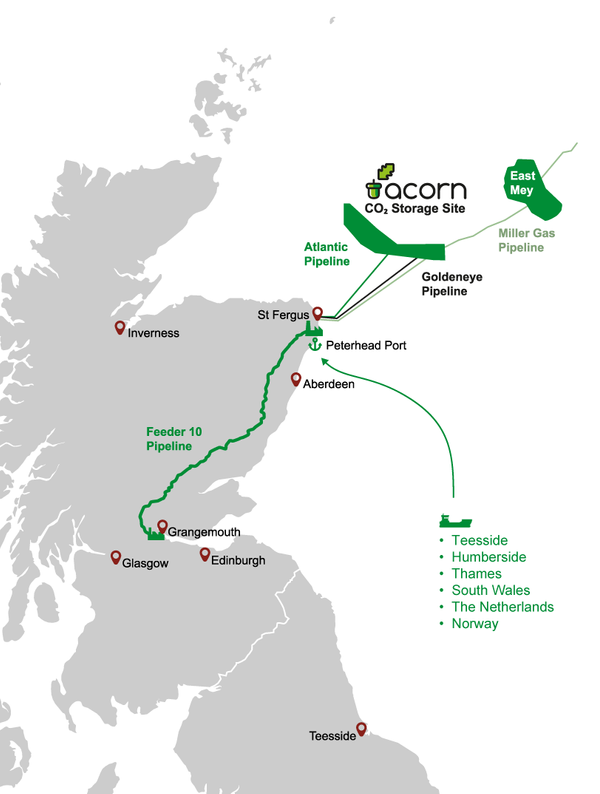
U.S. oil major ExxonMobil has agreed to take part in the Scottish carbon capture project that's designed to store carbon from onshore industrial plants under the North Sea seabed.
The project, named Acorn carbon capture and storage project (CCS) in Scotland, plans to capture and store approximately 5-6 million tons of CO2 per year by 2030 from gas terminals at the St Fergus complex at Peterhead, Scotland, which includes ExxonMobil’s joint venture gas terminal.
The Acorn Project has the potential to provide more than half of the 10 million tons per year of CO2 storage the UK government is targeting, and when expanded has the potential to store more than 20 million tons of CO2 emissions per year by the mid-2030s.
Joe Blommaert, president of Low Carbon Solutions at ExxonMobil: "We are pleased to support the Acorn Project in the deployment of CCS, one of the most important technologies required to achieve society’s climate goals." He did not say what ExxonMobil's goal in the CCS project would be.
Oil and gas major Shell last month took the role of Technical Developer for the Acorn Carbon Capture and Storage (CCS) Project in Scotland, the partners in the project said Tuesday.
The carbon capture and storage project in the UK, run by Storegga, Shell, and Harbour Energy, includes the CO2 capture project at St Fergus and the transport and storage project which will transport CO2 offshore from St Fergus through the existing Goldeneye pipeline to the Acorn CO2 Storage Site – a large volume of sandstone rock, found over 2.5km under the seabed, approximately 100km offshore from St Fergus.
ExxonMobil also said it has joined NECCUS, an alliance of industry, government, and academic experts committed to reducing carbon emissions from industrial facilities in Scotland. NECCUS members include the Scottish government, four Scottish universities, and several industry partners. “
In March, ExxonMobil established a Low Carbon Solutions business to commercialize low-emission technologies. It is initially focusing on CCS, the process of capturing CO2 from industrial activity that would otherwise be released into the atmosphere, and injecting it into deep underground geologic formations for permanent storage.